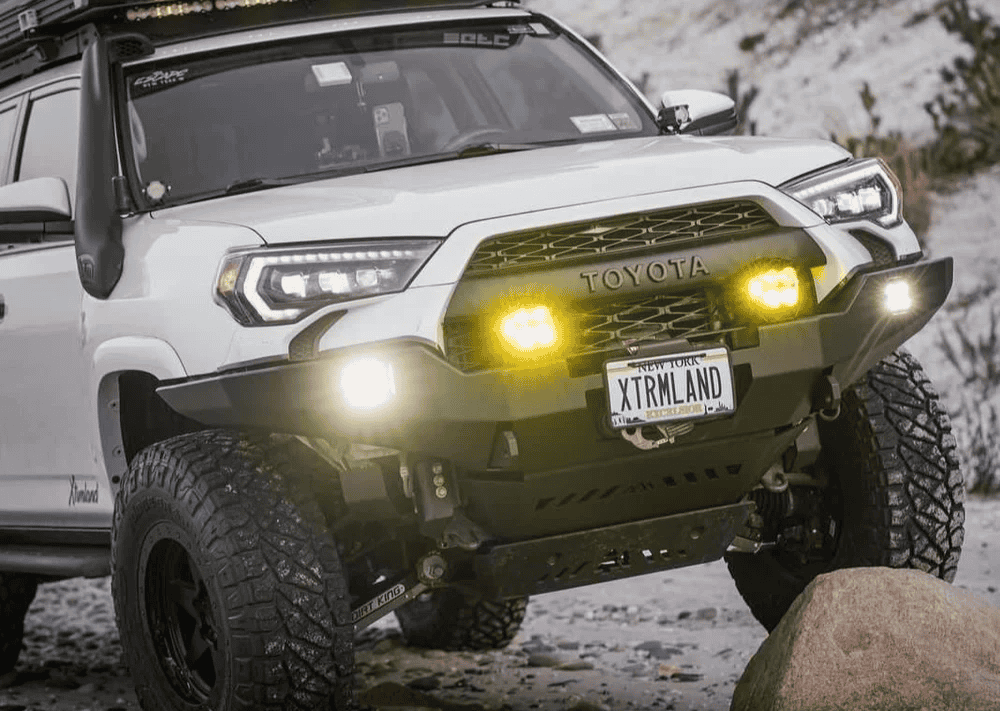Overland Vehicles

A 4x4 overland camper is built to reach remote camps while carrying the essentials for days or weeks. It is not just a van with knobby tires. The core is a durable chassis with a powertrain that can crawl rocky tracks, hold speed on dirt, and manage heat while loaded. Many travelers start with a body on frame truck or a modern all wheel drive van, then add gearing, lockers, and a suspension tuned for both highway miles and uneven terrain.
For those comparing platforms, a Ford off road RV can mean a transit based build with all wheel drive or a heavier duty chassis cab with a box or flatbed module. Payload matters more than peak horsepower, since water, batteries, and recovery gear add up. Aim for wheel and tire combinations that balance sidewall height and road manners, and pair them with shocks designed for sustained corrugations. The result is a rig that feels stable on pavement and predictable when the asphalt ends.
Look for low range, appropriate axle ratios, and real world approach and departure angles. Weight distribution is key. Keep heavy items low and between the axles to preserve handling. An off road RV truck built on a three quarter ton or one ton frame can support larger water tanks and spares without sagging.
Choose springs and dampers matched to your loaded weight, not the empty spec sheet. Use all terrain tires known for puncture resistance and consistent wet braking. Carry a full size spare and plug kit, and torque lugs after long gravel stretches.
Add upgraded pads and rotors if you will push mountain passes often. Improve steering feel with appropriate geometry and alignment. For visibility, use legal auxiliary lighting aimed correctly, plus a clean camera setup to spot obstacles at low speed.
Power, heat, water, and ventilation separate a day tripper from a self contained overland home. Battery systems often blend high capacity lithium, solar, and alternator charging. An energy budget starts with essentials like refrigeration, ventilation fans, and induction cooking if you skip propane. Right sizing the inverter prevents wasted power at idle and keeps sensitive electronics happy.
Water capacity drives route planning as much as fuel. A modest luxury camping van might carry 20 to 30 gallons, while a big camping bus can double that but pays the penalty in weight. Filters and UV sterilizers stretch supply when you can find surface sources. For cold nights, diesel air heaters offer efficient cabin warmth and altitude friendly operation. In hot regions, shade systems and reflective insulation reduce energy draw before you ever switch on cooling.
Solar offset is valuable but variable. Combine rooftop arrays with alternator charging to handle cloudy spells. Smart battery monitors give a truthful state of charge, reducing range anxiety when you are days from the nearest outlet.
Use simple, maintainable plumbing with accessible pumps and valves. Consider a cassette or composting solution if you want fewer black tank stops. Cross ventilation and insulated window covers make sleep comfortable across seasons.
Efficient layouts keep walkways open and tie gear down securely. Fire suppression, gas detection, and proper wire protection are non negotiable. Luxury travel vehicles are defined by quiet interiors, rattle free cabinetry, and materials that handle dust and moisture without degrading.
Off grid travel rewards preparation. Reduce speed on washboard, air down within safe limits, and avoid sharp steering inputs on loose surfaces. Know when to turn around. Recovery boards, a quality jack, and a rated tow point often solve more problems than a winch used without training. Communications matter too. A satellite communicator or a mobile antenna system can bridge dead zones and keep plans flexible.
Trip planning should account for fuel range with headwinds, water resupply, and emergency exits. Mobile home travel means your home goes where you go, so balance comfort with redundancy. Spares like belts, fuses, hoses, and filters take little space but can save a trip. Whether you choose a compact 4x4 overland camper or a larger off road RV truck, the goal is a dependable rhythm of drive, explore, rest, and repeat.
If you prefer a tailored approach, custom recreational vehicles built by a focused shop can compress years of trial and error into one confident handoff. The right team will match your terrain goals, passenger count, and climate needs to a platform and system plan that just works. Start by reviewing proven overland rigs to identify must have capabilities and nice to haves.
When you are ready to translate a checklist into hardware, explore a custom overland upfit that aligns suspension, power, water, and storage from day one. If you want to understand the process and standards behind the work, see why choose OZK Customs for a look at approach, materials, and outcomes. With thoughtful planning, a refined luxury camping van can deliver the comfort of luxury travel vehicles while keeping trail manners intact.
You know how you travel. We know how to turn that into a dependable, quiet, and capable vehicle that carries you farther. Share your route style, crew size, and storage needs, and we will shape a build that handles the backroads without drama and feels like home when you park.
Ready to build a capable, comfortable rig without guesswork? Tell us how you travel and we will map a complete overland upfit that fits your routes, crew size, and gear. Submit the form and let OZK turn your overland vision into a trail ready reality.
ADDRESS:
6159 E Huntsville Rd, Fayetteville, AR 72701
PHONE:
(479) 326-9200
EMAIL:
info@ozkvans.com